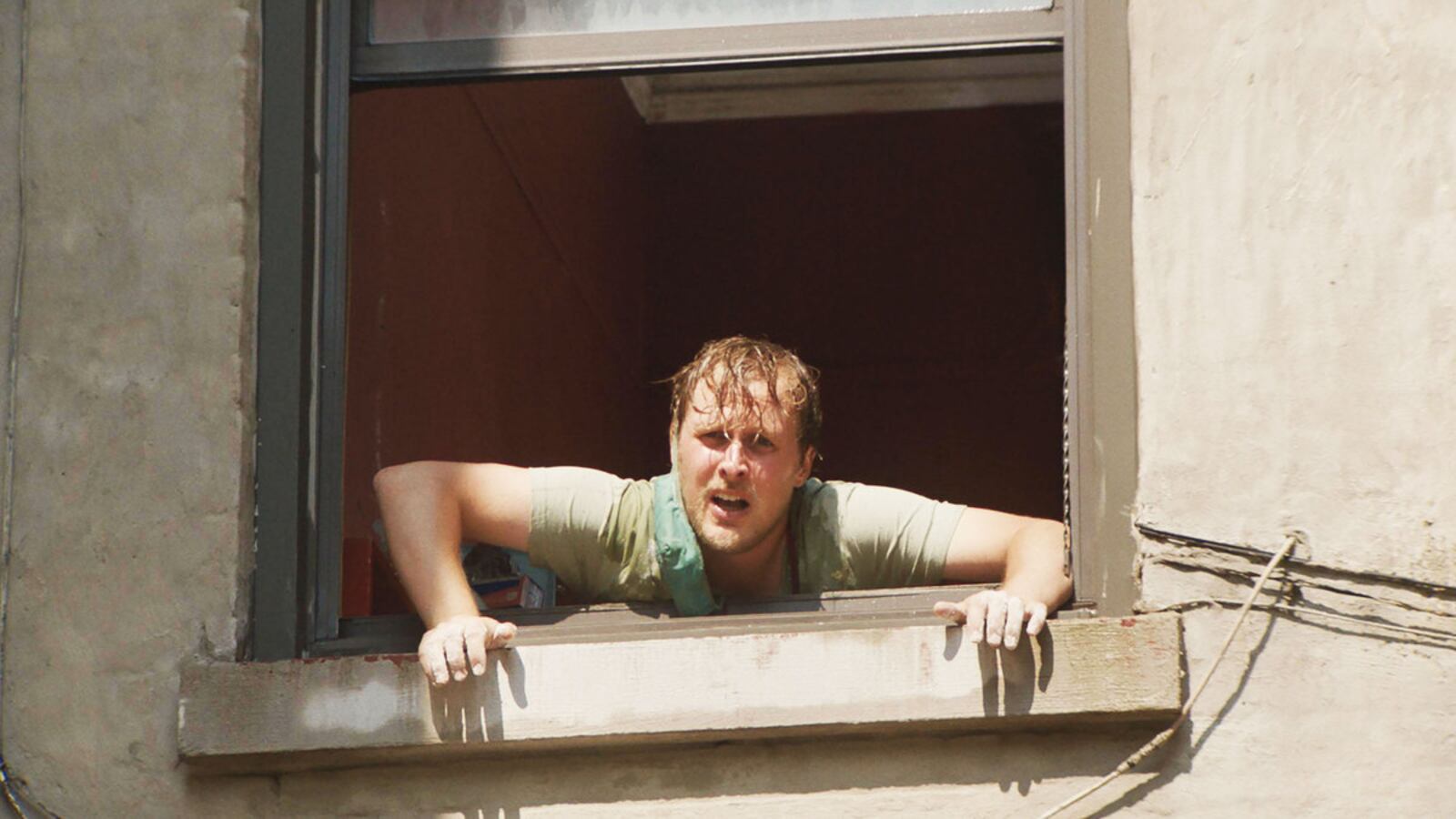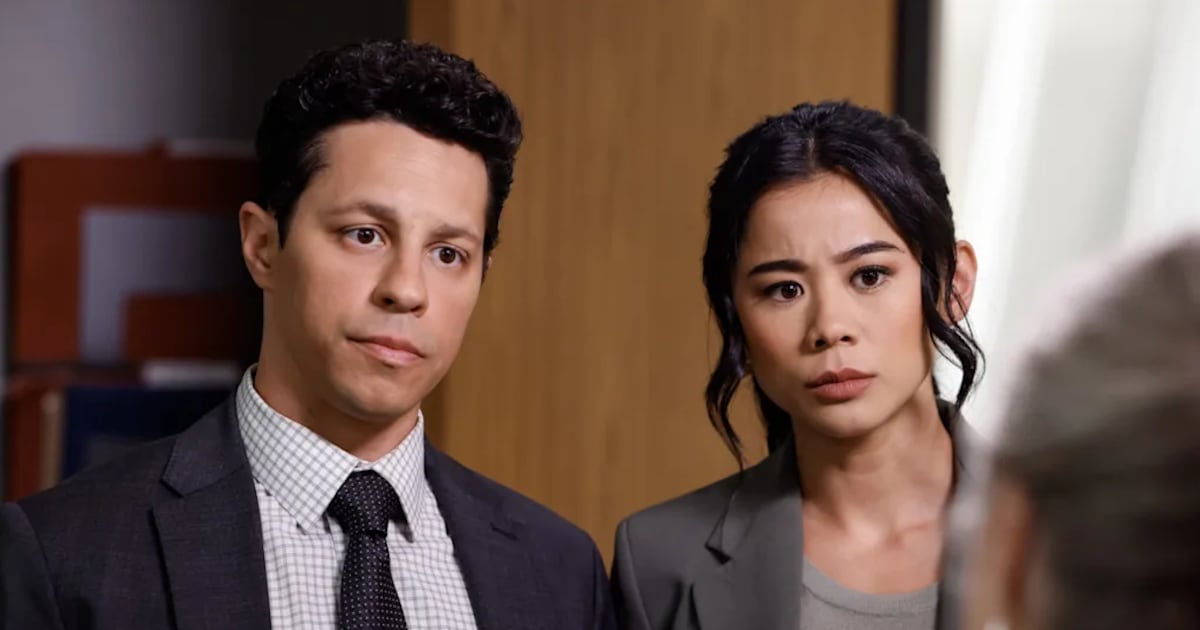Most of us still cringe when we hear the phrase “COVID movie,” not because it’s “too soon,” but because seemingly every angle of the pandemic, of lockdown, of vaccine paranoia has already been dramatized. We’ve had dramas about how social isolation is bad, thrillers about lockdown home invasion, horror movies about the next transmittable contagion beyond our dimension. After four years we’ve kind of covered it, and, frankly, it’s not a subject that many people necessarily want to keep revisiting. Theda Hammel’s Stress Positions, on the other hand, manages to be a COVID movie without being a “COVID movie,” using the pandemic as mere backdrop for a slyly hilarious comedy about life on pause.
It’s the early months of lockdown in New York, an anxious time for the residents of what was then an epicenter for disease transmission. Still, everyone has other shit to deal with. Exasperated Terry Goon (Hammel’s frequent collaborator John Early) is steadfastly refusing to look at the divorce papers from the ex-husband whose brownstone Terry is still living in while playing host to his nephew Bahlul (Qaher Harhash), a half-Moroccan model recuperating from an injury while picking apart his racial and gender identities. Then there’s Karla (Hammel), a trans woman whose girlfriend Vanessa (Amy Zimmer) stole her life story for the plot of her bestselling novel and is hard at work on another one while Karla wonders if they should separate. Terry’s upstairs neighbor Coco (Rebecca F. Wright) thinks COVID is fake, and delivery driver Ronald (Faheem Ali) flirts with everyone coming in and out of Terry’s building.
It would be enough without the added stress of a miasma of viral particles that may or may not be blasting out of everyone’s mouths, but the COVID stuff is sprinkled in tastefully, like Marvel movie references to a very specific 2020 urban experience: masks, disinfectant spray, stockpiles of disposable wipes, contactless food delivery, 7 p.m. pot-clanging, ambulance sirens, daytime fireworks, Maldon salt. It enhances rather than distracts from the characters and their perpetual circular anxieties, grounding everything in a time period that altered us all. Lockdown was an interior time; we were closed off inside our homes, inside our minds, free to imagine what alternate lives we could be leading if we could just get out of the house. The only company we had was our own slightly megalomaniacal self-narration, which pops up in Stress Positions as the characters take turns providing their own meditative voice-overs explaining events.
When they’re not scrutinizing everything in their heads, they’re doing it IRL, constantly prodding at each other during meandering, mumblecore conversations on Terry’s back patio, where nothing is sacred. Gay men, gay women, trans women, Fire Island, 9/11, death, the vapidity of memoir, the geopolitics of the Middle East—all of it is grist for the backyard discourse mill where everyone just says whatever they think because what, exactly, is stopping them?
It’s very funny and a little bit sad, moments of levity balanced by little bits of melancholy, particularly with Bahlul, who turns his memories of his mother over and over in his hands like a puzzle box as his convalescence forces him to confront who he thinks he is. Tormented Terry runs around like Jennifer Lawrence in mother!, constantly reminding everyone to pull up their masks, to wash their hands. Early’s penchant for physical comedy leads to several tremendous pratfalls, after which he delivers lines like “I slipped on a chicken” with the feverish whine only he can muster. Chekov’s Theragun makes its way from hand to hand, relieving back and shoulder pain until it becomes the impetus behind a climactic scene that rips everything to shreds and reminds us how, even when the world has stopped around us, we continue altering ourselves and our relationships, searching for connection wherever we can find it.






